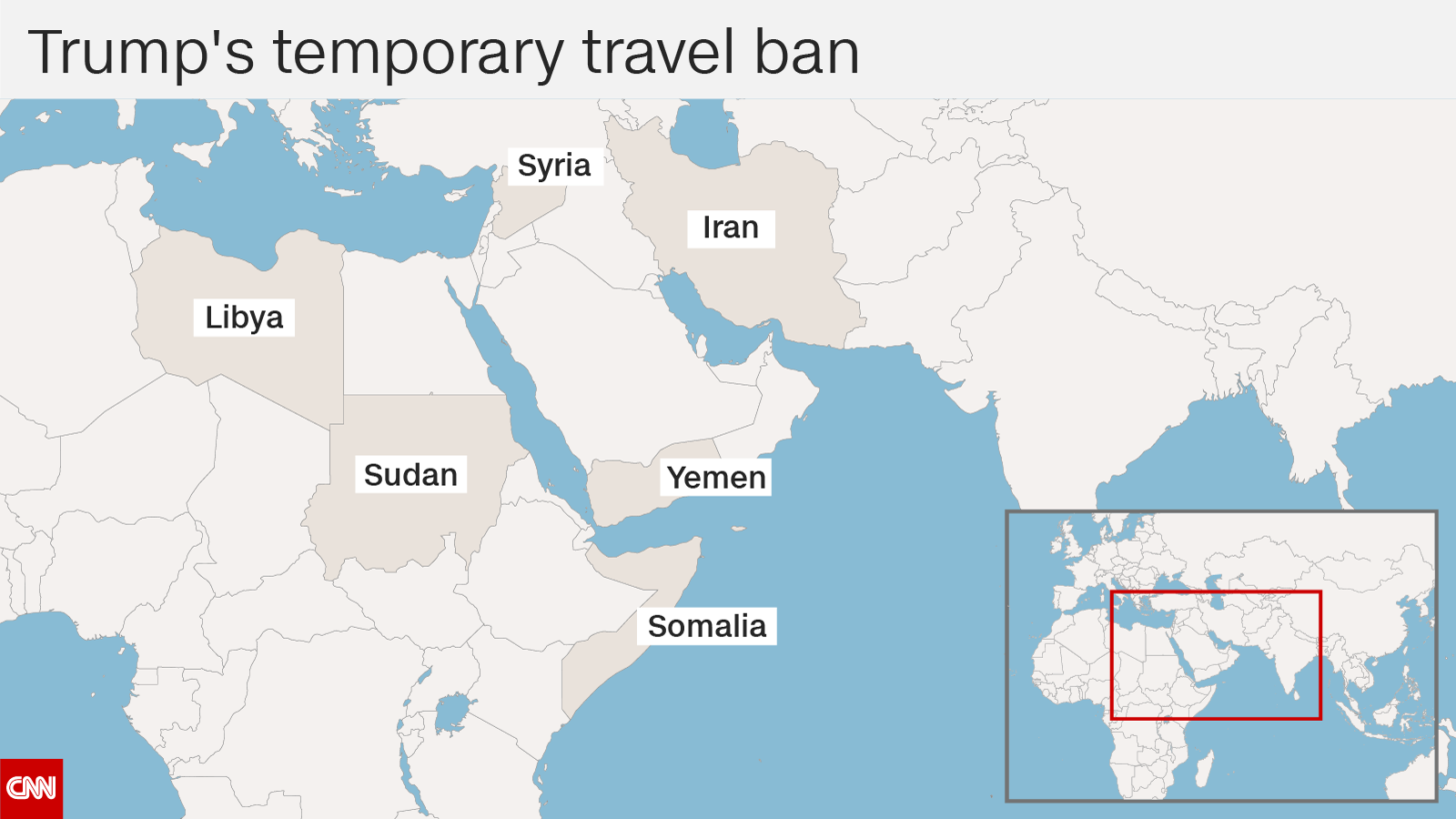International Students Face Travel Concerns Amid Trump Travel Ban: A Story of Uncertainty and Resilience
Remember the feeling of anticipation before a big trip? The excitement of packing, the nervous energy of a new adventure, the thrill of exploring a different culture? For international students, that feeling is often amplified tenfold. They’re not just going on vacation; they’re embarking on a journey that could shape their entire future. But what happens when that journey is threatened? What happens when the very possibility of reaching their dreams is cast into doubt by political turmoil? This is the reality many international students faced during the Trump administration’s travel bans.

This article delves into the anxieties, challenges, and ultimate resilience shown by international students navigating the complexities of the travel bans. We’ll explore the impact on their education, their mental health, and their overall experience of studying abroad. It’s a story of uncertainty, but also of remarkable strength and determination.
The Travel Ban: A Storm Cloud Over Academic Dreams
The Trump administration’s travel bans, implemented in stages between 2017 and 2021, targeted several Muslim-majority countries, restricting entry to the United States for citizens of those nations. These bans weren’t just abstract policies; they were real-life roadblocks for countless individuals, many of whom were aspiring students with accepted university admissions.
Imagine this: you’ve worked tirelessly, sacrificing time and resources, to secure a place at your dream university in the US. You’ve overcome countless hurdles, from rigorous application processes to securing funding. You’ve packed your bags, said goodbye to family and friends, and are ready for the adventure of a lifetime. Then, a travel ban is announced, suddenly throwing your meticulously planned future into disarray. This wasn’t a hypothetical scenario; it was the harsh reality for many.

The bans created a climate of fear and uncertainty. Students faced:
- Visa denials and delays: The application process, already complex, became even more fraught with anxiety. The unpredictable nature of the bans meant that even students with valid visas were unsure if they would be allowed entry.
- Separation from families: Many students were separated from their families for extended periods, unable to visit home or have their loved ones visit them due to travel restrictions.
- Financial strain: The delays and uncertainty caused significant financial burdens, with students facing unexpected expenses and lost opportunities.
- Mental health challenges: The constant stress, uncertainty, and fear of deportation took a heavy toll on the mental health of many students.

Beyond the Legal Battles: The Human Cost
The legal battles surrounding the travel bans dominated headlines, but the human stories often got lost in the political noise. These weren’t just statistics; they were individuals with dreams, aspirations, and fears.
One such story is that of Ayesha Khan, a bright young woman from Pakistan who had secured a scholarship to study computer science at a prestigious university in California. Her visa application was initially approved, but the travel ban came into effect just weeks before her departure. She spent months in limbo, her dreams hanging in the balance, while her lawyers fought to overturn the ban’s impact on her case. Ayesha’s story, while heartbreaking, is far from unique. Countless students faced similar challenges, their academic journeys jeopardized by forces beyond their control.

Another example is that of Omar Ali, a Syrian refugee who had escaped the war-torn country and found refuge in Jordan. He had received a scholarship to study medicine in the US, a chance to rebuild his life and contribute to his community. The travel ban, however, created an insurmountable obstacle, leaving him stranded in Jordan with his hopes dashed. These are just two examples of the countless individuals whose lives were dramatically impacted by the travel bans.
The Resilience of the Human Spirit: Adapting and Overcoming
Despite the immense challenges, international students demonstrated remarkable resilience. They organized protests, launched advocacy campaigns, and sought support from universities and community organizations. They found strength in solidarity, sharing their experiences and providing mutual support. Many universities stepped up to provide legal assistance, counseling services, and financial aid to affected students.
The experience fostered a strong sense of community among international students. They created support networks, sharing information, resources, and emotional support. This collective resilience was crucial in navigating the turbulent times. They learned to adapt, to be flexible, and to find creative solutions to overcome the obstacles thrown their way.
Long-Term Impacts and Lessons Learned

The travel bans had lasting impacts on international students. Some students abandoned their academic pursuits, while others faced significant delays in their studies. The psychological toll was immense, leaving many students with lingering anxieties and uncertainties. The experience highlighted the vulnerability of international students and the need for stronger support systems.
The experience also underscored the importance of international collaboration and the interconnectedness of the global community. The response from universities, advocacy groups, and individuals around the world demonstrated the power of collective action in the face of injustice.
Moving Forward: Ensuring a Welcoming Environment for International Students
The experiences of international students during the travel bans serve as a stark reminder of the importance of creating a welcoming and inclusive environment for all students, regardless of their nationality or background. This requires: